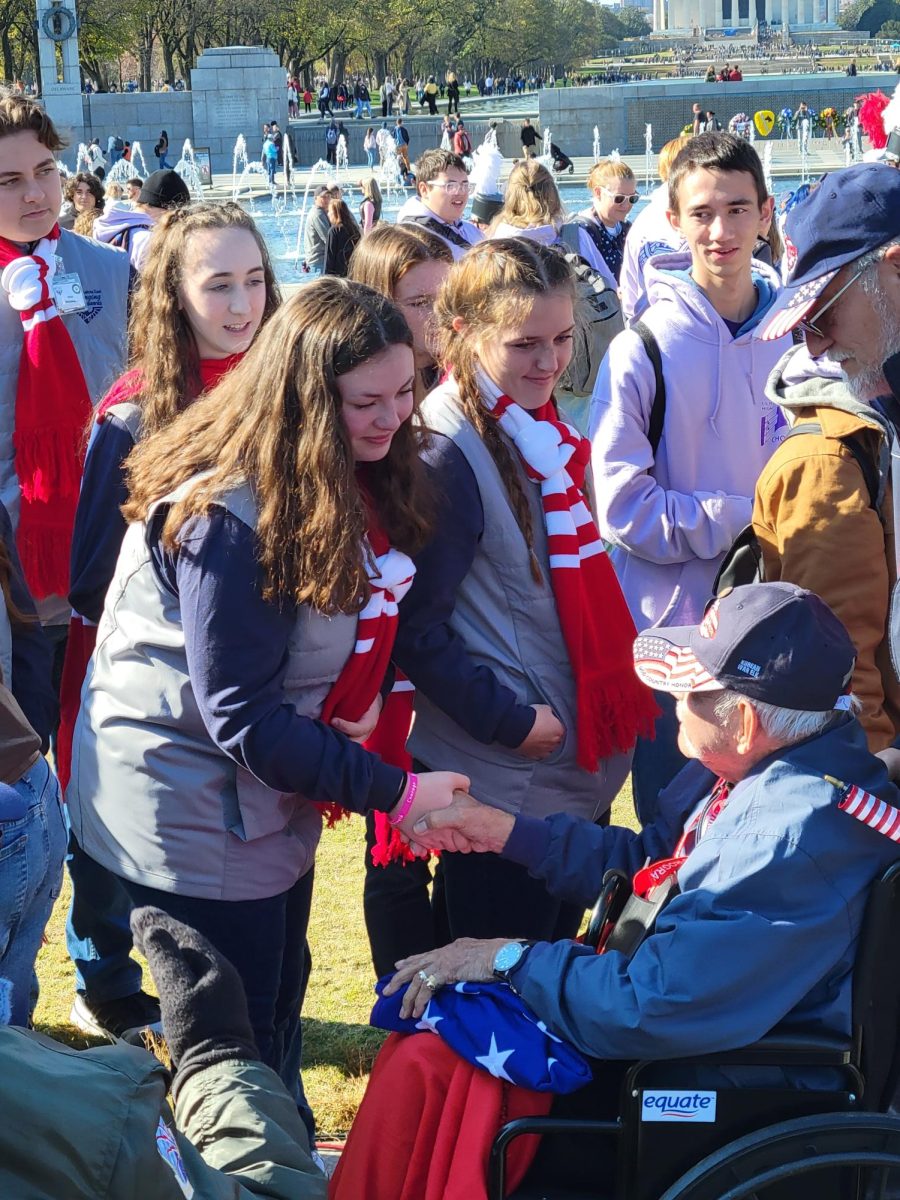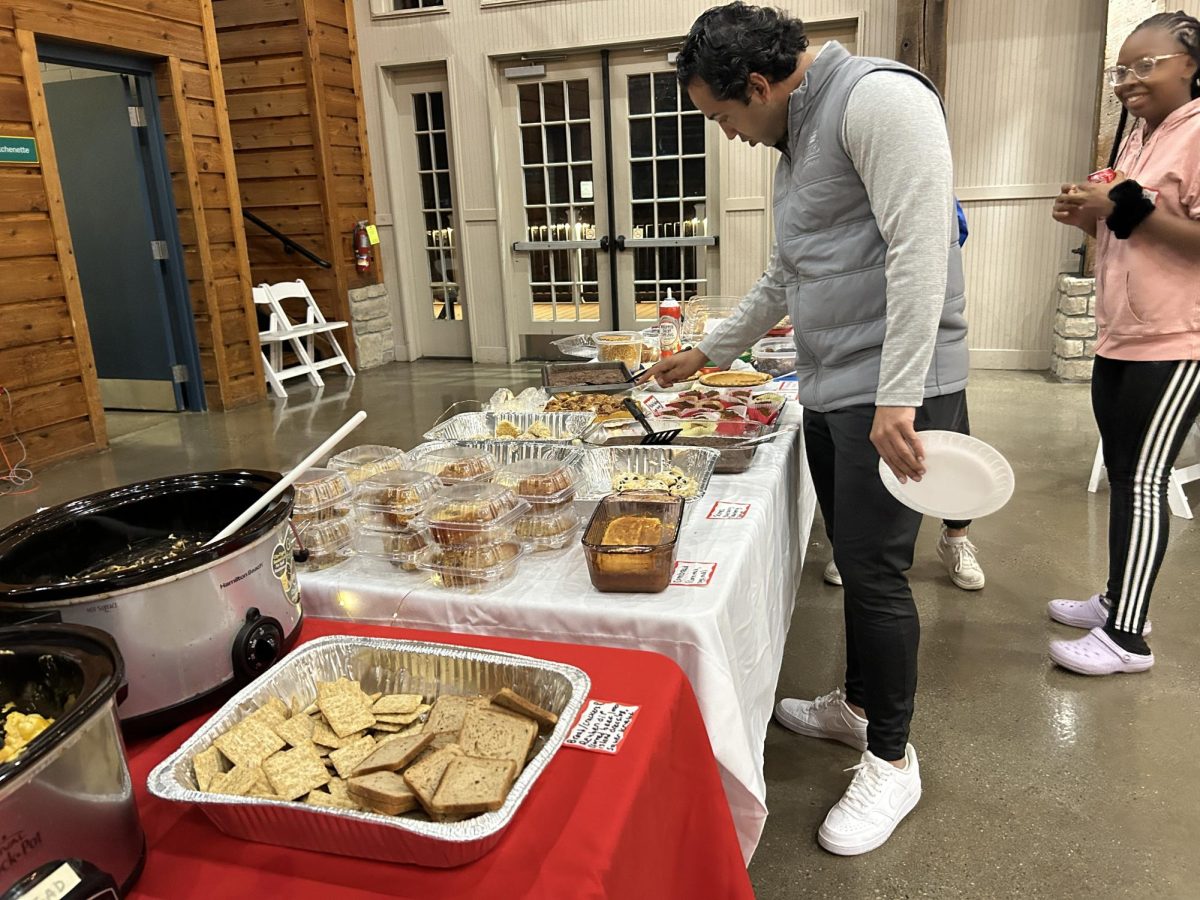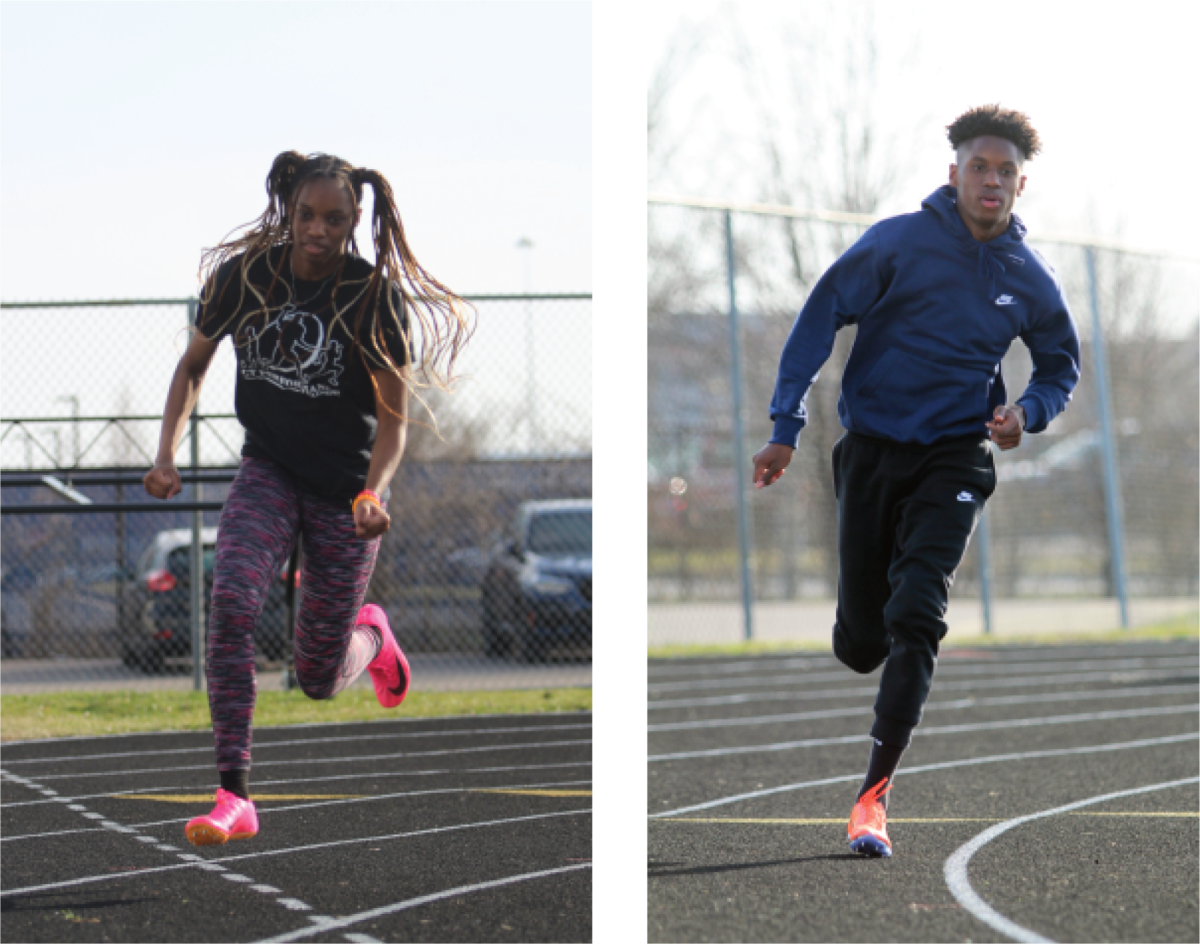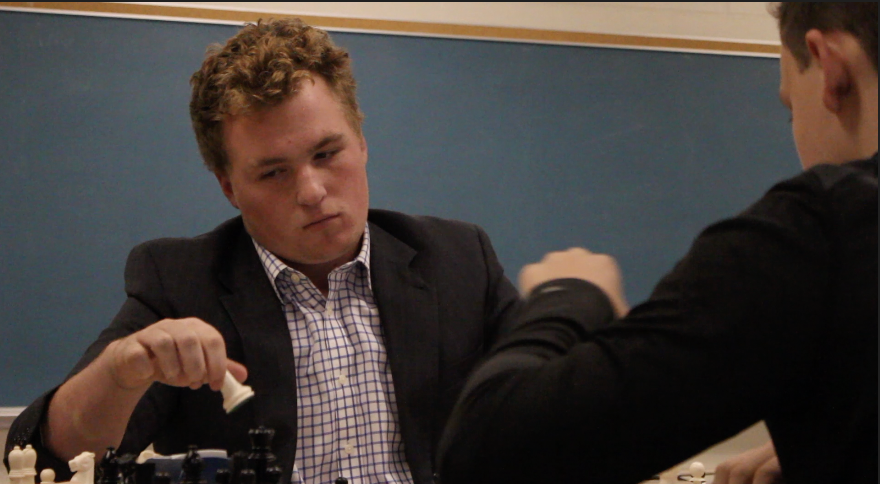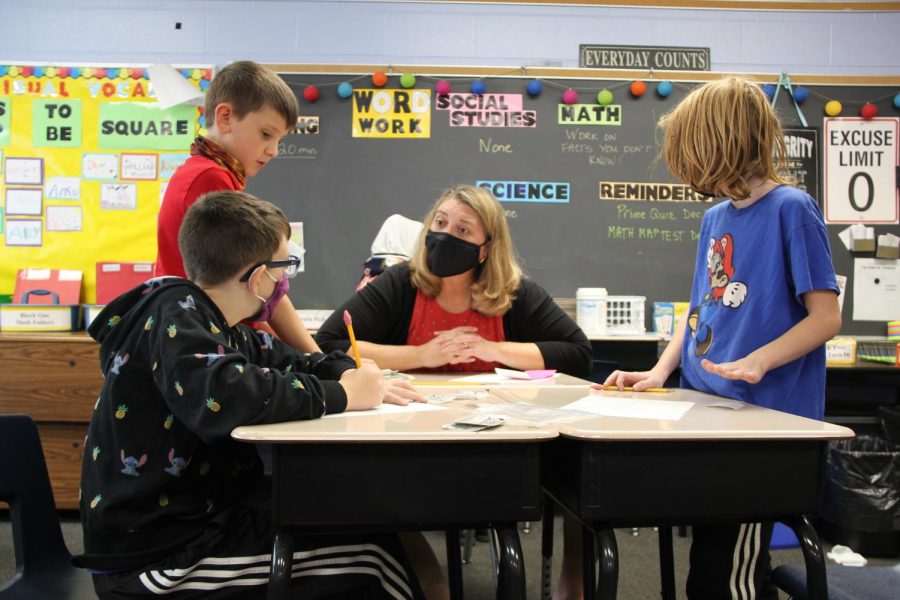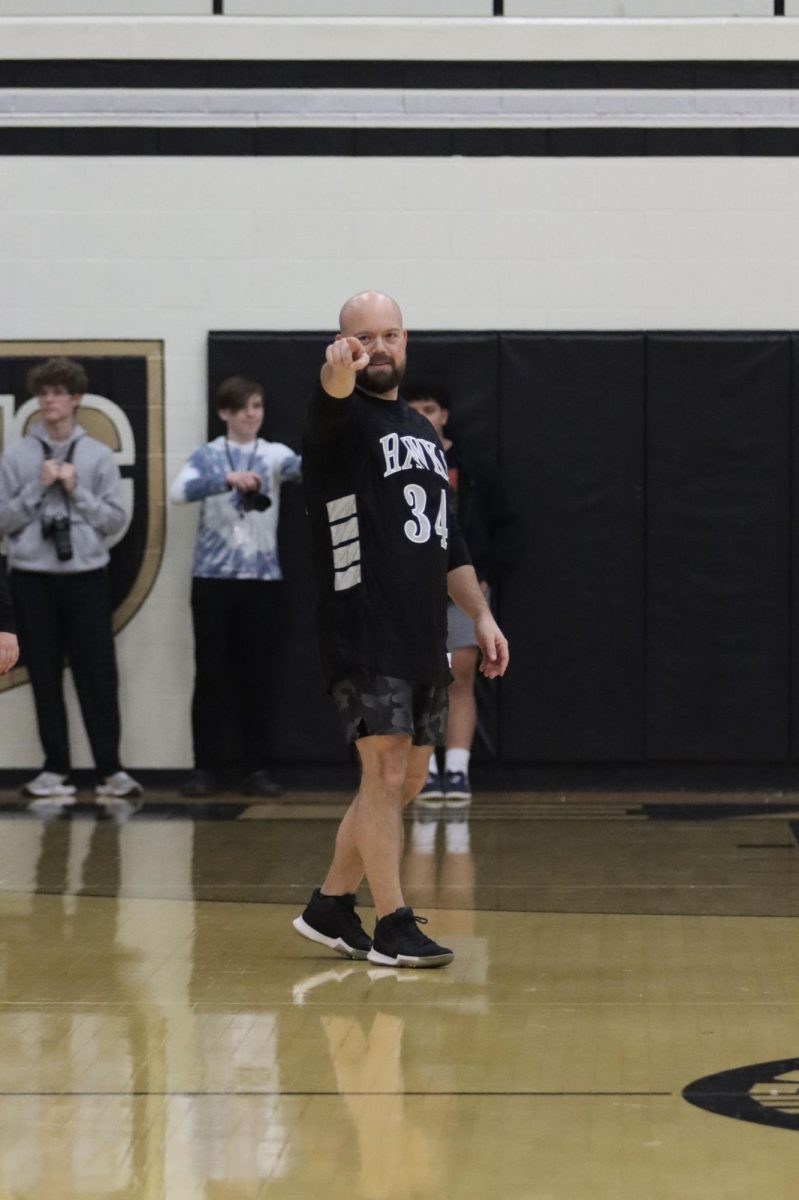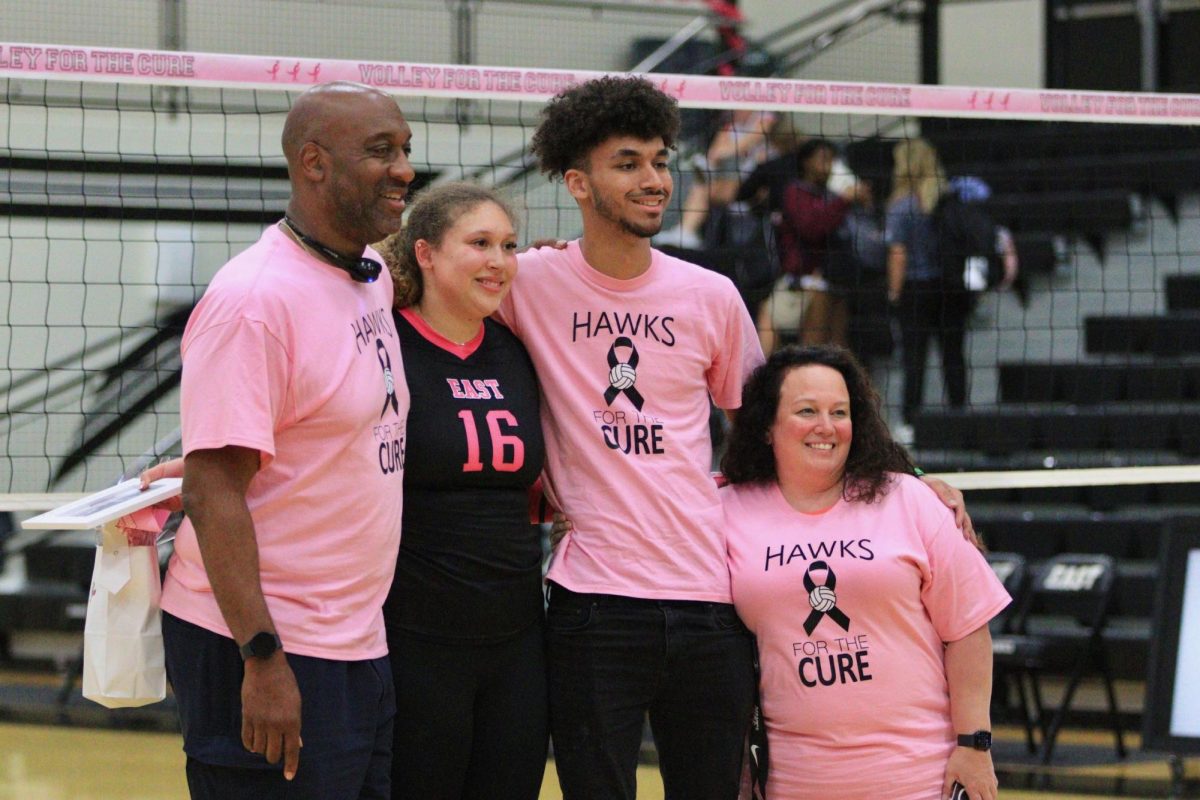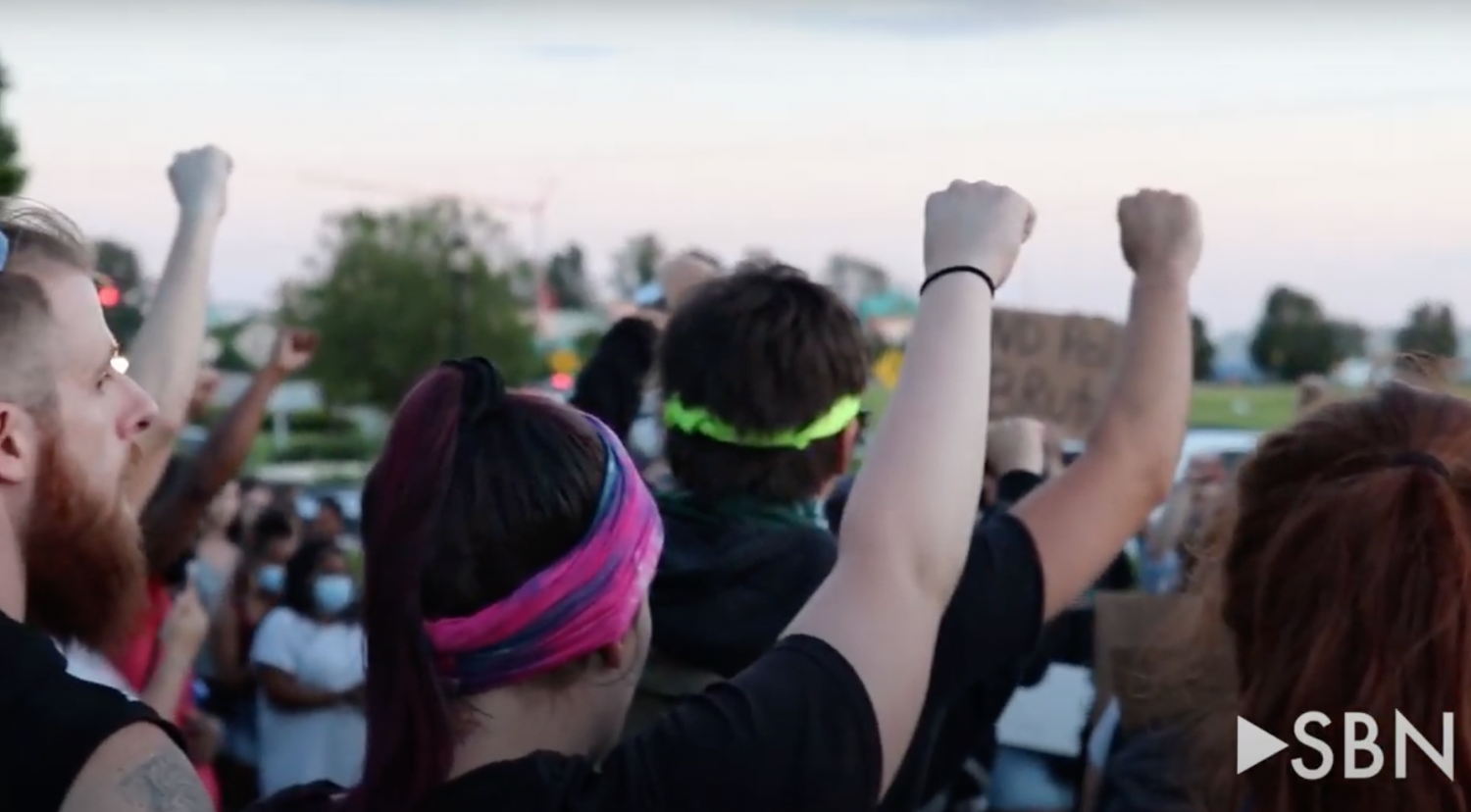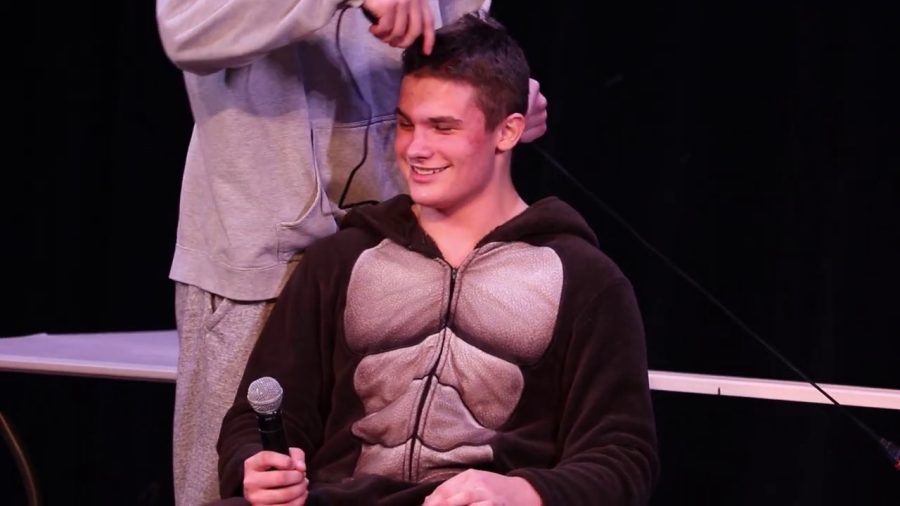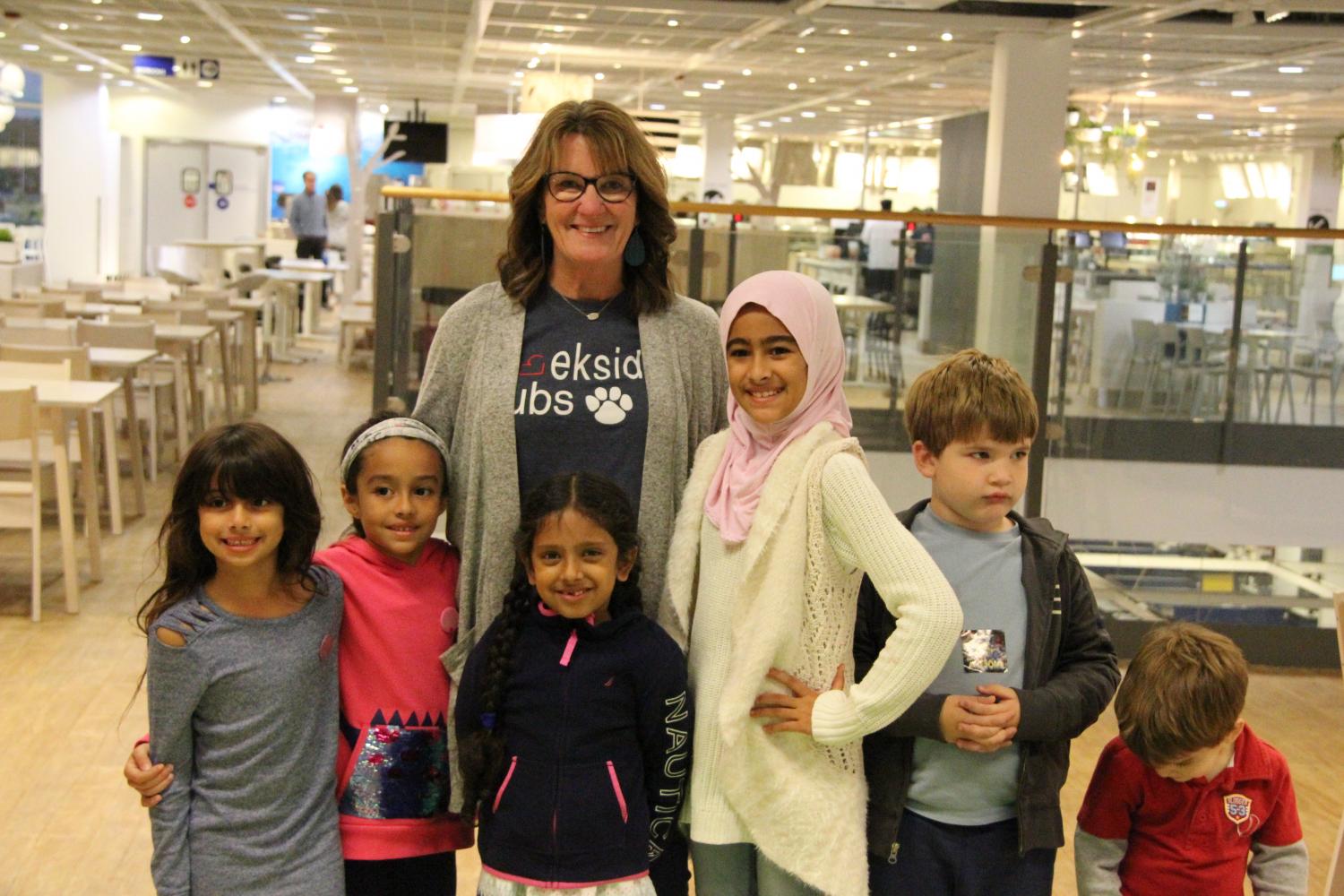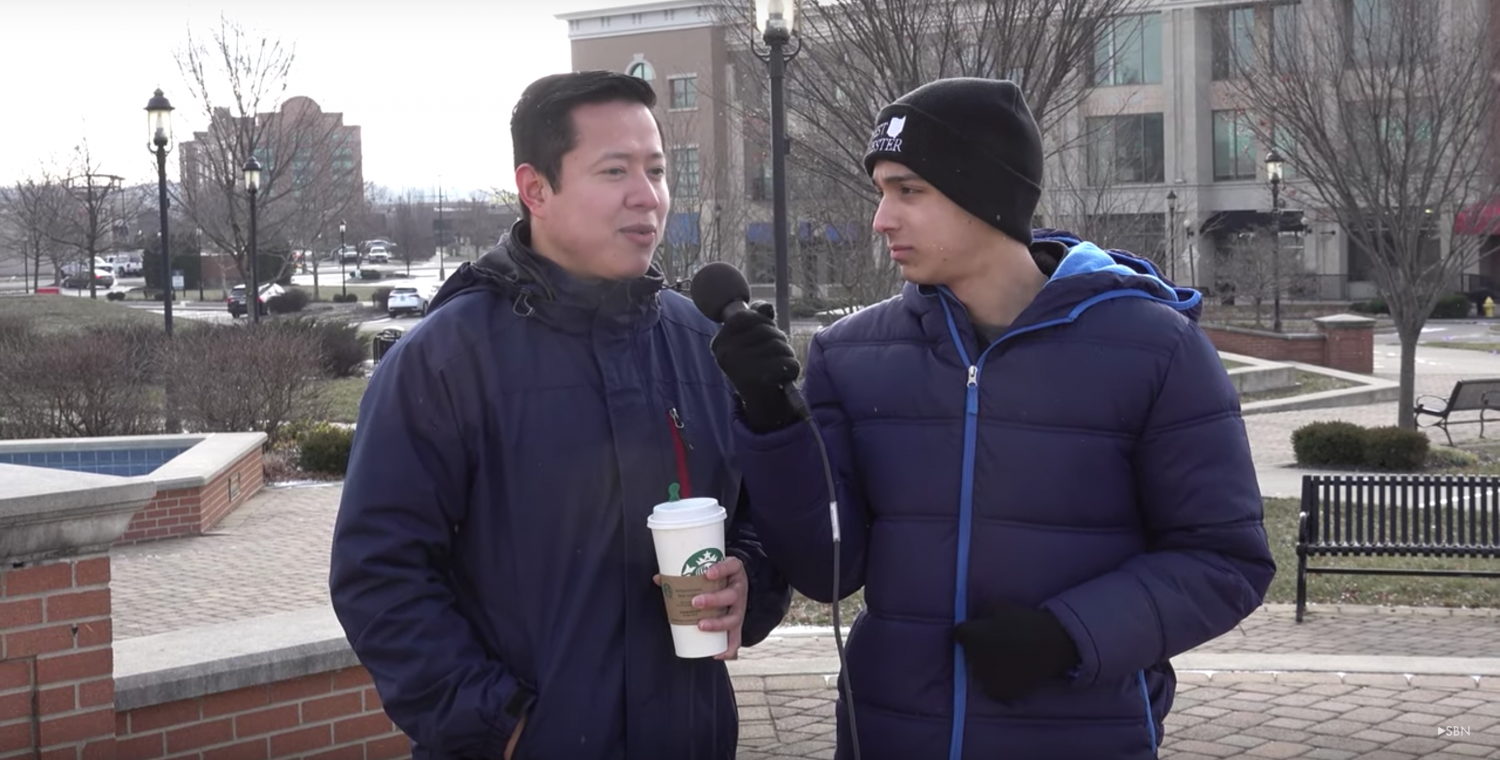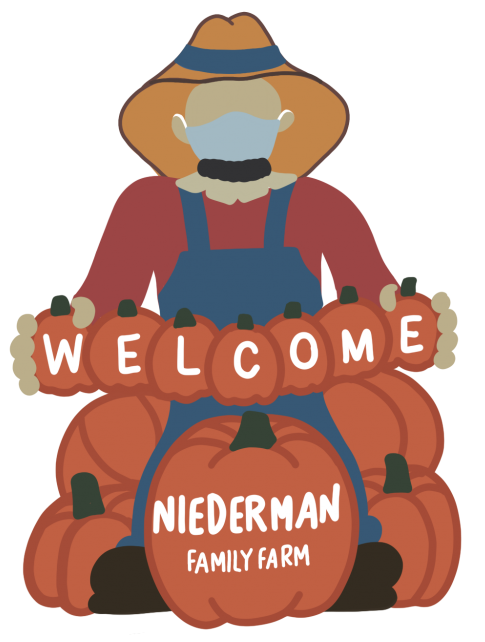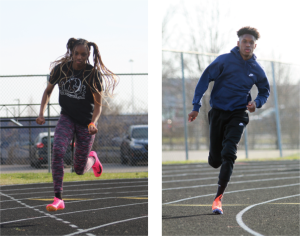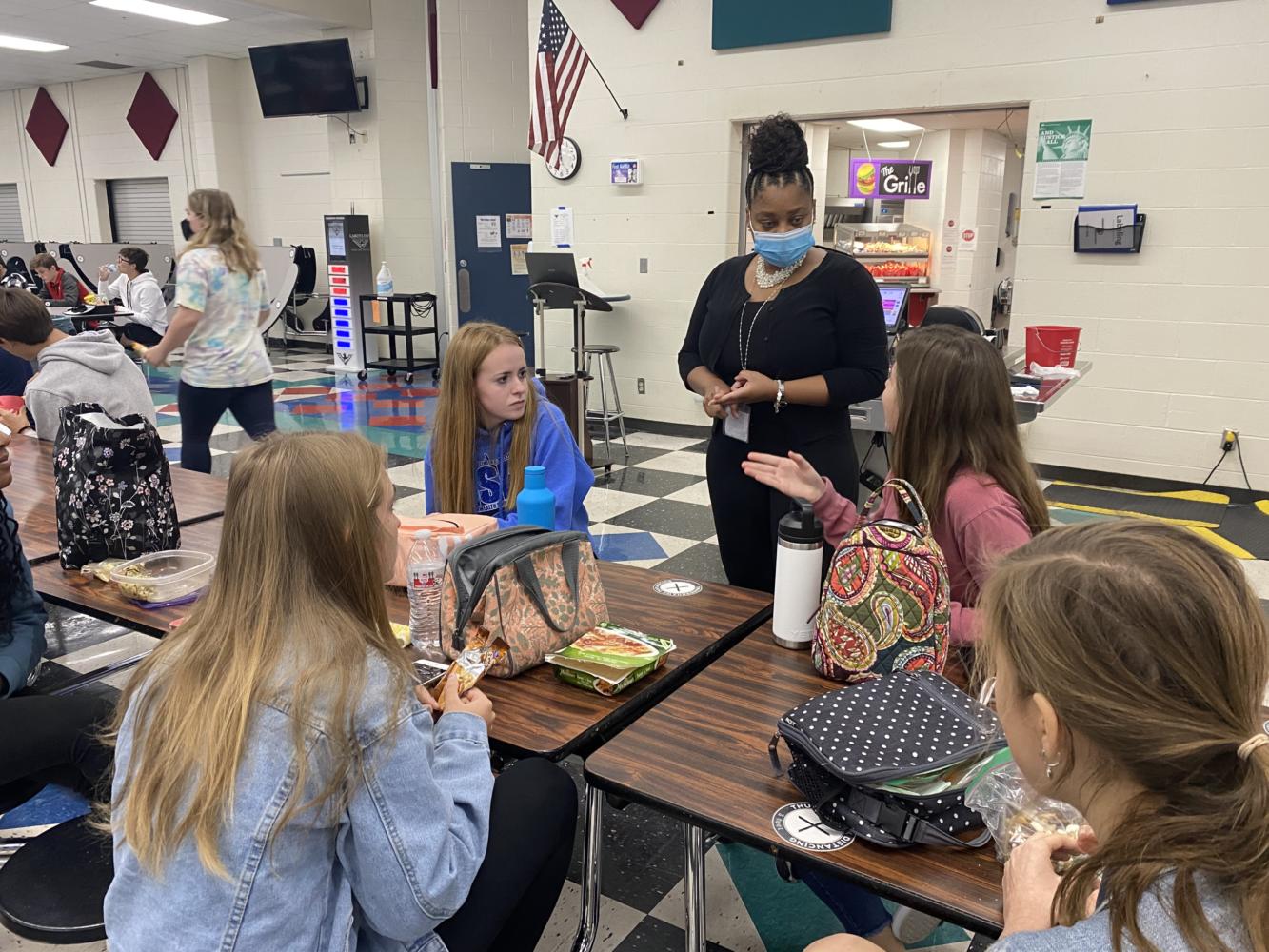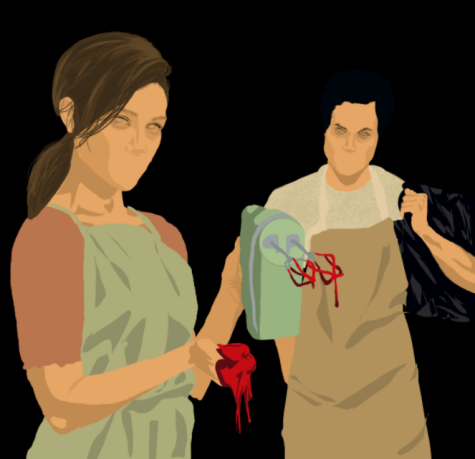Small Shops Suffering
May 28, 2020
story by Mia Hilkowitz | art by Rachel Anderson
For years, Niederman Family Farm has been a staple in the Liberty Township and West Chester community. Hundreds of families visit for birthday parties, field trips, and weddings, or to play around at the farm’s Paintball Country. But this spring, the once-bustling establishment is completely empty.
Niederman Family Farm is one of Ohio’s over 940,000 small businesses that has been affected by the coronavirus pandemic. Following Ohio Gov. Mike DeWine’s March 22, 2020 announcement ordering the shutdown of “non-essential business,” Niederman Farm acted quickly to adapt to the regulation. Owner Bethann Niederman described the chaos of the ensuing hours.
“The first thing we thought about was the birthday parties that were already booked to have a party at Paintball,” Niederman told Spark. “We had to call right away and say ‘I’m so sorry,’ and that was heartbreaking because families had plans to make memories with us, and we had to break those plans.”
Niederman’s next concern was for their farm’s employees.
“The next thought was, ‘oh my goodness if we can’t open we have to contact all the staff and say ‘I’m sorry we don’t need you this weekend,’’” Niederman said. “They’ve all had to go home because there are no people or parties on the weekends.”
Niederman Family Farm was not alone in this. According to the Ohio Department of Job and Family Services, the total number of statewide unemployment claims made in the three weeks leading up to April 4, 2020 was 696,519, doubling the number of claims made in all of 2019.
Currently, the Cleveland Clinic predicts that COVID-19 cases in Ohio will peak in mid-May to June and start to gradually decrease in July. A projection like this leaves Niederman and many other local small businesses worried for upcoming months.
“The concerns that we’re looking at now are for the future,” Niederman said. “What does it mean about our spring? What about the events we have booked in the summer? Fall is our largest season here on the farm, so how will that affect business [in the fall]?”
In addition to entertainment aspects of the establishment like Paintball Country, field trips, and parties, Niederman Family Farm operates a farm that both grows crops and takes care of farm animals. Under the Ohio stay at home order, implemented on March 22, farms are considered essential businesses and continue to operate. But Niederman feels that shutting down one part can still have an effect on the rest of the farm, as well as surrounding businesses.
“There are no people or parties on the weekend, so I don’t have the need for [supplies], affecting the companies or businesses that we order from,” Niederman said. “I don’t need to order jams, jellies, or pizza because there’s nobody here.”
This ripple effect is an issue concerning the entire country. In hopes of minimizing the economic fallout from the pandemic, a $2 trillion economic stimulus has been passed by Congress that aims at helping small businesses grapple with the financial obstacles to come from the long term closure.
But until the stimulus takes effect, small businesses are finding new ways to adapt to social distancing regulations and closures. Crossfit Ironside Owner Melissa Anguiz said her business is adapting to the change.
“We’ve been putting out workouts every single day for gym members to do at home,” Anguiz told Spark. “In addition to that, we are doing online workouts through Zoom, so we have certain times in the day where we have everybody log on and participate.”
Anguiz feels that the online transition has been a challenge since Crossfit Ironside’s service is difficult to replicate outside of the gym.
“Gyms don’t have a certain good that we are able to ship out and deliver,” Anguiz said. “Gyms are so much more of an in-person experience. We’re able to do a lot at home, but there’s nothing you can fully replace.”
“What does it mean about our spring? What about the events we have booked in the summer? Fall is our largest season here on the farm, so how will that affect business [in the fall]?” -Bethann Niederman
Anguiz is also concerned about the impact that a long-term closure could have on the gym.
“[Crossfit Ironside] as a small business has less freedom in a time like this,” Anguiz said. “The pressure and the timeline of the closures may last, but we have a limited budget to enable us to survive through that.”
Down the road, pastry shop Donut Dude found themselves in a unique situation for a small business. Opening on March 21, 2020 the day before DeWine issued Ohio’s stay at home order, owner Glen Huey feared the worst.
“When [DeWine] made the announcement that they were closing everything, my first thought was ‘well, we’re shut down and we’re not even going to get a chance to open the doors,’” Huey told Spark. “When they said that you could still carry out, I kind of felt like it wasn’t really going to bother us a lot.”
Fortunately for Huey, who owns the shop with his wife Laurie, Donut Dude had an unexpectedly busy opening week, with members of the community coming out to support the new business.
“It didn’t affect us the way most people would think,” Huey said. “People couldn’t go out and sit down at restaurants, they could only pick up or have delivery, and we were a place where you can come in to get doughnuts. So people say, ‘let’s try them,’ and give the business a chance.”
Donut Dude has adapted to new social distancing regulations by allowing only two customers in the store at a single time and increasing cleaning practices. But even with this early success, Huey is worried about an extended closure.
“It’s going to be a big money problem for us,” Huey said. “We still have to pay all our suppliers, [and] we have to pay all our rent on the location.”
Still, Huey remains optimistic and reflects on how the Covid-19 pandemic has impacted the surrounding Liberty Township community.
“I think [the pandemic] has made people more aware of who’s around them,” Huey said. “The community support has just been phenomenal. We wouldn’t be where we are today if the community hadn’t got around and behind us.”
For Niederman Family Farm, owners and staff are depending on this same sense of community to help their business recover. To show this, they are running a social media campaign called “A Dozen Thank-Yous” until May 8, 2020, where people can purchase a bag of donuts for a “hometown hero” who helped during the pandemic.
“Everybody’s trying to figure out a way to do something, because we get concerned about members of our community that we want to help,” Niederman said. “This way we’re not going away from the social distancing rules, and also giving other people the opportunity to help.”


